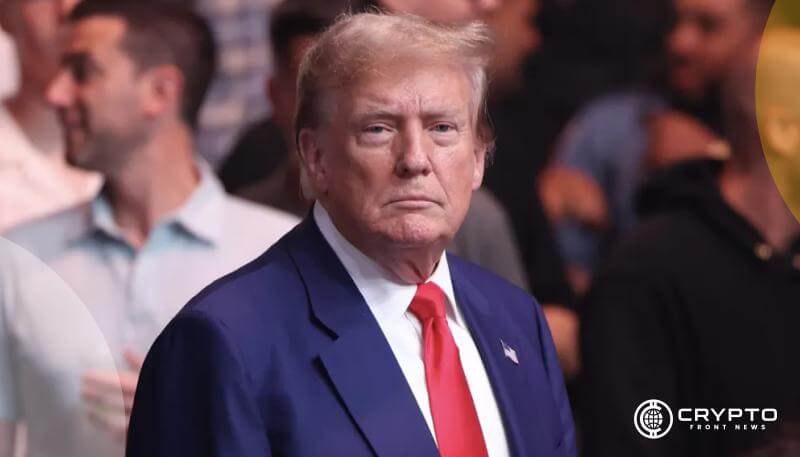- Trump’s plan to use tariff funds for rebates could boost household spending and push more money into Bitcoin and digital assets.
- World Liberty Financial is expanding Trump’s crypto footprint with a debit card pilot and tokenized commodities like oil and timber.
- The launch of USD1 stablecoin and new crypto utilities marks Trump’s deeper move into blending politics, finance, and digital assets.
Donald Trump has hinted at new taxpayer rebates, sparking heated debate across economic and crypto circles. He suggested channeling $1,000 to $2,000 rebates from tariff revenue directly to Americans. The announcement, made during his campaign stops, instantly fueled speculation about its economic and market impact.
Analysts noted that extra cash in households often flows into both spending and alternative investments. Hence, the ripple effect could boost consumer demand while driving fresh capital into digital assets like Bitcoin.
The strategy leans on tariffs, which are taxes on imported goods. Trump wants to recycle this revenue into citizen rebates rather than adding to debt. Besides spurring consumer activity, the move fits his nationalist economic agenda that prioritizes domestic production over foreign reliance.
Consequently, the proposal blends immediate relief with longer-term strategic positioning. The timing matters because rising inflation and slowing growth are keeping markets on edge.
Crypto Angle Gains Momentum
The crypto community quickly tied the proposal to Bitcoin’s track record during stimulus cycles. Moreover, Bitcoin often rallies when households receive extra cash, as seen during the pandemic-era checks.
Analysts argue that new rebates could spark another rush into Bitcoin and Ethereum. “More stimulus money, more fuel for Bitcoin,” observed Bitcoin Archive on X, underlining growing enthusiasm.
Additionally, Trump’s circle is pushing forward with direct crypto ventures. World Liberty Financial, a crypto firm linked to Trump, unveiled major products at Token2049 in Singapore. CEO Zach Witkoff announced a crypto debit card pilot expected by late 2025 or early 2026. “That debit card will either be live Q4 or Q1′26,” Witkoff confirmed. The card aims to link digital assets with daily spending.
Expanding Trump’s Crypto Footprint
The company is also exploring tokenized commodities. “We’ve not only thought about it, we’re actively working on it,” Witkoff said. He highlighted oil, gas, cotton, and timber as examples.
Furthermore, the firm has already launched USD1, a stablecoin pegged to the U.S. dollar and backed by treasuries. Trump Jr. emphasized utility, saying, “Ultimately, we’re looking to create utility; that’s something that’s been largely missing in crypto.”
Trump’s dual push—rebates through tariffs and expanding crypto infrastructure—signals a fresh convergence of politics, economics, and digital assets. If executed, both could significantly reshape markets.






